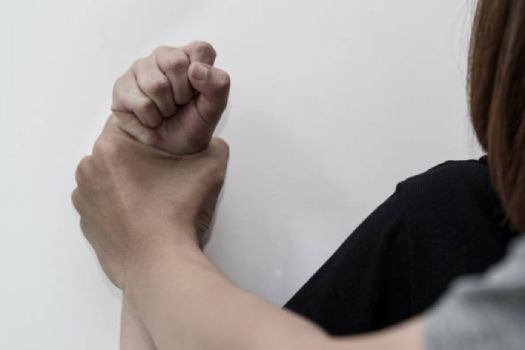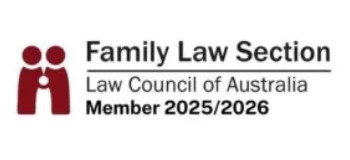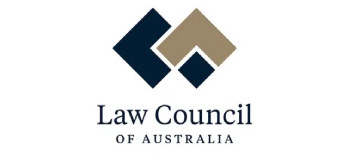DVO Lawyers Brisbane - When You Need Protection or Legal Defence
You’re not alone – get clarity, relief, and results from child support lawyers who listen and act fast.
Applying for a Protection Order or Responding to One?
We’ll Guide You Through it - With Clarity and Respect
For those seeking protection: it takes courage to take legal action. For those responding: it’s often a shock, and it may feel unjust or humiliating.
Our professional team will support both situations with:
- Urgency: Fast response and clear next steps
- Discretion: Private, confidential, trauma-informed guidance
- Respect: You’ll be listened to, not judged
- Expertise: This is one of the most complex parts of family law. We know it deeply.
You deserve to feel safe – or to have your reputation and legal position protected.

Here’s What Happens When You Contact Your DVO Lawyers...
Talk With an Experienced Lawyer
Quick response – no delays and you will speak with a expert, understanding lawyer who cares.
Get Clear Answers About Your Rights
We’ll explain what’s possible and how the law applies to your specific case - in simple, plain English.
Feel Clear and Confident Moving Forward
Whether you engage us or not, you’ll leave the call with certainty and direction.


Not Sure What a DVO, AVO, or Police Order Really Means? Let’s Break It Down
A Domestic Violence Order (DVO), sometimes called an AVO (Apprehended Violence Order), is a legal order to stop threats, harm or harassment.
There are two situations:
- You’re seeking a DVO – You want legal protection.
- You’re served with a DVO – Police or someone else has applied against you.
There are different types:
- Police Protection Notices (PPN)
- Temporary Protection Orders
- Final Orders
These can affect:
- Where you live
- Your ability to contact someone
- Firearm licenses, jobs, and parenting arrangements
Our lawyer will explain what applies to you and what to do next, in simple language.
Trusted & Recognised Memberships, Associations and Affiliations






What Clients Say After Working With Us
Posted onTrustindex verifies that the original source of the review is Google. Very happy with the service, advice I received from Skye, Felicity and team. Very professional, and listened to my needs to provide good advice. Highly recommendPosted onTrustindex verifies that the original source of the review is Google. Jill and the team are professional, responsive and very knowledgeable. I have no reservations in recommending the law peoplePosted onTrustindex verifies that the original source of the review is Google. Jill Johnstone and The Law People team always provide exceptional service from start to finish which is why Rouse Lawyers confidently refers its clients who need expert and experienced family law solicitors to them. The Law People know how to guide clients through every step, making potentially stressful situations more manageable. Clients benefit from The Law People’s incredible knowledge and genuine care for client well-being.Posted onTrustindex verifies that the original source of the review is Google. Jill and the team are fantastic. I highly recommend them for any family law matters.Posted onTrustindex verifies that the original source of the review is Google. The staff at The Law People are total pros. They are friendly, supportive and above all they get results. Highly recommend, particularly if you are a woman who is nervous about being taken seriously.Posted onTrustindex verifies that the original source of the review is Google. Wonderful team to work with.Load more


Led by an Accredited Family Law Specialist
When everything feels uncertain, it helps to know you’re being guided by a team led by one of Queensland’s most qualified family lawyers.
Less than 3% of solicitors in Queensland hold the title of Accredited Specialist in Family Law. It’s not a marketing term – it’s formal recognition from the Queensland Law Society that Jill Johnstone, Principal of The Law People, is among the top-tier experts in the state.
For you, that means:
- Advice that’s precise, strategic and fully aligned with current legal standards
- Representation from someone trusted by peers, judges, and clients alike
- Fewer delays, fewer missteps, and a smoother path to resolution
In complex or high-stakes matters – especially involving children, property, or financial disputes – that level of expertise can make a real difference in your outcomes.
What truly sets this team apart is that legal skill never comes at the expense of personable service. You’ll feel it from the first conversation – real understanding, practical advice, and guidance that puts your best interests at the centre.
So if you’ve been searching for family law advice you can truly trust – you’ve just found it.
Fast Action For Urgent Matters and a Long-Term Plan that Protects Your Future
DVOs often arise suddenly and emotionally – but the legal implications last far longer.
Our legal team will act immediately when needed, but also help you:
- Understand how this fits within your family law issues (e.g. parenting or property)
- Know what’s at risk and what’s not
- Build evidence or challenge unfounded claims
- Stay focused on long-term legal and personal goals
Whether you’re seeking safety, or want to clear your name – our lawyer will plan with you for both now and the future.

Commonly Asked Questions
Facing a Domestic Violence Order (DVO) or Apprehended Violence Order (AVO) can feel overwhelming – whether you are seeking protection or responding to an order made against you.
These orders can affect your safety, your family, and even your parenting arrangements, so it’s natural to have many questions. Below, we’ve answered some of the most common concerns people have about how DVOs and AVOs work, what they mean for your future, and the steps you can take to protect your rights.
The information below provides general guidance only and should not be taken as legal advice. Every situation is different.
What is a DVO and what types are there?
A Domestic Violence Order (DVO) is a court order designed to protect someone from violence, threats, or harassment. In Queensland it’s called a DVO, in New South Wales it’s an Apprehended Violence Order (AVO), and in other states it may be called a Restraining Order or Intervention Order. There are usually two types:
- Temporary orders, made quickly for immediate protection.
- Final orders, which last for a set period (often 1–5 years) and can have conditions attached.
Do I have to go to court?
If you apply for a DVO yourself, yes – you’ll need to attend court. If police apply on your behalf, they may represent the matter, but you may still need to attend. If an order is made against you, you’ll also need to go to court to respond.
Can a DVO affect my parenting?
Yes. A DVO can include conditions that impact whether you can see your children, where changeovers occur, or how contact is supervised. Courts must consider any domestic violence orders when making parenting decisions under the Family Law Act.
For advice specific to your circumstances, please contact The Law People so our team can provide tailored support.
One Call. Clear Advice. Real Support
Whether you’re applying for protection or facing an order, your future and wellbeing matter too much to wait.
Your Questions About Domestic Violence Orders – Answered
Will this go on my record?
A DVO is a civil order, not a criminal conviction. It will not show up as a criminal record. However, breaching a DVO is a criminal offence and can lead to charges, which will go on your record.
How do I apply for a DVO?
You can apply directly at a Magistrates Court, or the police can apply for you. In urgent situations, police can issue a temporary protection order on the spot.
What should I do if police issue an order against me?
Take it seriously. Read the conditions carefully and follow them – even if you disagree. Breaching an order has serious criminal consequences. Seek legal advice straight away so you understand your options, including whether to consent without admissions, negotiate conditions, or contest the order.
Can I see my children if there’s a DVO?
Sometimes. It depends on the terms of the order. Some DVOs include exemptions for parenting arrangements, while others restrict or prohibit contact. You may need to apply to vary the order to allow safe time with your children.
What happens at court for a DVO hearing?
The Magistrate will hear evidence from both sides, including police if they applied. You can consent to the order (with or without admitting the allegations), negotiate conditions, or oppose it and have the matter set down for a trial.
How long does a DVO last?
Final orders usually last between 1–5 years, though the court can make longer orders if necessary. Temporary orders last until the next court date.
Can a DVO be changed or revoked?
Yes. Either party can apply to vary, extend, or revoke an order. The court will only make changes if it believes the new conditions still ensure safety and are appropriate.
Will it affect my job, license, or travel?
It depends. A DVO may affect certain jobs that require security clearances, working with children, or professional licences. Some visa or overseas travel applications may also ask about domestic violence orders. Get advice if you’re worried about your work or travel.
How fast can you help me?
Quickly. In urgent matters, we can usually meet with you the same day or within 24 hours to give advice and help prepare for court.
What’s the difference between a DVO, AVO and restraining order?
They all serve the same purpose – to protect someone from violence or harassment. The name changes depending on the state or territory:
- Queensland – Domestic Violence Order (DVO)
- New South Wales – Apprehended Violence Order (AVO)
- Victoria – Intervention Order (IVO)
- South Australia – Intervention Order (IO)
- Western Australia – Restraining Order (RO)
Can a DVO override or affect existing Federal Circuit and Family Court parenting orders?
Yes. A DVO can temporarily limit or override existing parenting arrangements if the conditions are inconsistent. For example, if parenting orders say you can see your children but a DVO stops contact, the DVO conditions take priority until the conflict is resolved. The Federal Circuit and Family Court can later review the situation to make long-term arrangements.
What happens if my ex uses a DVO application to gain an advantage in family law proceedings?
Sometimes people feel DVOs are misused in family law disputes. If this happens, the court will carefully test the evidence. False or exaggerated claims can be challenged, but it’s important to respond properly and provide your own evidence. Legal advice can help protect your rights.
Can I cross-apply for a DVO if I also feel unsafe?
Yes. If you believe you need protection too, you can file a cross-application. The court will usually hear both matters together and decide whether one or both orders are necessary.
What if both parties apply for DVOs against each other?
The court will look at the evidence for each application separately. In some cases, it may grant orders for both parties, especially where there is conflict in both directions. In other cases, only one order may be made.
Can a DVO be enforced across state borders in Australia?
Yes. DVOs are nationally recognised under the National Domestic Violence Order Scheme. This means if you have a valid order in one state or territory, it automatically applies across all of Australia.
How do DVOs interact with immigration or visa applications?
Having a DVO made against you can affect some visa or residency applications, depending on the type of visa. If you are the protected person, it can sometimes be relevant in immigration matters too. It’s important to get advice from an immigration lawyer if this applies to you.
Will a DVO affect my ability to hold a firearms licence or other professional licence?
Yes, usually. Most DVOs automatically prevent the respondent from having firearms. For other professional licences (like security, teaching, or health care), a DVO may need to be disclosed and could affect your eligibility. Always check with your licensing body.
What if the person who applied for the DVO contacts me - can I respond, or is that a breach?
Even if the protected person contacts you, it’s still a breach if you respond and the order says no contact. Breaching a DVO is a criminal offence. The safest step is not to reply and to keep a record of the attempted contact.
How do I challenge false allegations in a DVO application?
Can electronic communications (texts, emails, social media) be used as evidence in a DVO hearing?
What happens if children are named on a DVO - does it limit my parental rights?
Can I travel overseas or interstate with a DVO in place?
Yes, in most cases a DVO doesn’t prevent travel. However, if children are involved and orders restrict contact or movement, those limits still apply. Always check your order before making plans.
What’s the difference between consenting “with admissions” and “without admissions”?
If you consent “with admissions”, you’re agreeing both to the order and to the allegations made. If you consent “without admissions”, you agree to the order being made but don’t admit the allegations. Many people choose “without admissions” to resolve the matter without a full hearing.
If I own a home with the other party, can a DVO affect my ability to live there?
Yes. A DVO can require you to leave the property even if you’re the owner or leaseholder. The court does this to prioritise safety, but your property rights can still be considered later in family law proceedings.
How do police decide whether to issue a temporary order on the spot?
Police can issue a temporary (or “police protection”) order if they believe someone is at immediate risk of harm. These orders usually last until the matter is heard in court.
Can I appeal or review a Magistrate’s decision to make or refuse a DVO?
Yes. You can appeal to a higher court if you believe there was a legal error or the decision was unfair. Appeals must usually be filed quickly, so timing is critical.
What happens if I breach a DVO accidentally (e.g. running into the other person in public)?
If the breach was unintentional, you may still be charged. The police and ultimately court will consider the circumstances, but it’s important to show that you did everything possible to comply. If accidental contact happens, document it and avoid further issues.
Can counselling, behaviour change programs, or rehabilitation affect the outcome of a DVO?
Yes. Courts often consider whether the respondent has taken steps to change behaviour, such as attending anger management or counselling. This may influence whether the order is continued, varied, or revoked.
How do DVOs interact with child protection investigations?
If child protection services are involved, they will usually work alongside the court process. Sometimes DVO conditions are adjusted to reflect child protection recommendations.
Can DVO conditions be tailored for work or family circumstances, like handovers at school or contact through lawyers only?
Yes. Conditions can be customised – for example, allowing contact only through lawyers, or setting specific arrangements for child handovers. If the conditions don’t work for your situation, you can ask the court to vary them.
